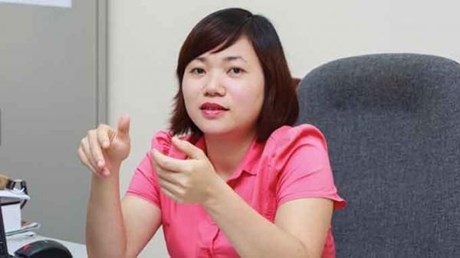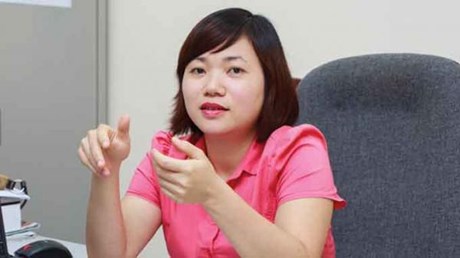
ButDoctor, as someone who researches and trains personnel for journalism, on the occasion of the Vietnamese Revolutionary Press Day on June 21st, could you share some of your thoughts with journalists today?
I would like to express my sincere gratitude to TBTCVN for allowing me to share a few thoughts. To be honest, when I applied to the Journalism Department of the University more than 20 years ago, I didn't think I would study journalism to become a lecturer. I'm sure my colleagues in the department felt the same way.
But after graduation, because we were the first graduating class, the professors gave us an opportunity to continue their work. Perhaps it was fate. Every profession has its own advantages and challenges. For me, journalism has always been an extremely interesting profession, and one of my greatest passions, because through it, I have learned so many wonderful things about life...
On the occasion of the Vietnamese Revolutionary Press Day on June 21st, I would like to extend my sincere thanks and best wishes to all teachers, journalists, newsrooms, colleagues, alumni, and journalism students.

Dr. Nguyen Thi Thanh Huyen: "For me, journalism has always been an extremely interesting profession, and one of my greatest passions, because thanks to it, I have learned so many wonderful things from life..."
ButFrom the perspective of someone who is both involved in training management and conducts research and teaching in the field of journalism, Doctor, could you share some insights into the pressures faced in journalism training in the current context?
Journalism training, in any era, has always faced pressures and difficulties. Personally, I think journalism training currently faces two prominent challenges. First, the rapid development of communication technology has brought many opportunities but also many challenges to the field of journalism.
The emergence of many new forms and methods of media has significantly transformed the landscape of the media industry, making it difficult for both newsrooms and training institutions to keep up. This leads to a second challenge: from the curriculum framework to each individual classroom lesson, everything must be constantly updated to meet the demands of practical work.
The "static" element in training is shrinking, while the "dynamic" element is increasing, requiring both teachers and learners to constantly strive and innovate.
ButIn reality, many media organizations now produce different types of media within the same newsroom, including print, radio, television, and online news... How have these practices and trends impacted current journalism training, Doctor?
That's right. The practice and trends of convergent, multimedia-integrated media have strongly impacted journalism schools. About 10 years ago, in the Faculty of Journalism and Communication, we considered dividing students into specialized training programs based on different types of journalism right from their first year.
However, through surveys of employer needs, we found that comprehensive training, where students study more than one specialization, leads to higher adaptability upon graduation. Therefore, since 2012, we have adjusted the curriculum framework for the Journalism major.
Accordingly, students can choose one or more specializations themselves, including: (1) print journalism - online journalism, (2) radio broadcasting - television, (3) PR - advertising from the 3rd semester. In addition, since 2013, the Faculty of Journalism and Communication has been allowed to enroll students in the Public Relations major. Journalism students can also register to study for a double degree, a main and minor degree with Public Relations and vice versa.
With this new credit-based training system, students are more proactive in acquiring knowledge and skills than before, giving them more career opportunities upon graduation.
- Currently, there is a growing need for training in specialized journalism – especially in the knowledge and skills of economic journalism. What are your thoughts on this issue, Doctor?
It's difficult to include courses and topics from all disciplines, including economics, in a journalism training program. However, if future journalists aren't equipped with specific knowledge in a particular field, it's difficult for them to perform well immediately after graduation. After listening to feedback from employers, we've included courses in the curriculum that provide knowledge in several specialized areas of journalism, allowing students to choose according to their interests.
For example, with a course called "Specialized Journalism" consisting of 4 credits (equivalent to 60 hours of theoretical study), students will be able to choose to study groups of knowledge and skills in journalism related to economics and finance, or domestic affairs, culture, society, international affairs, sports, law, etc., depending on their needs.
However, both the duration and content of those courses only partially meet the requirements of newsrooms. Students still have to proactively improve their skills while interning at newsrooms. Both faculty and students in the department are constantly striving to find ways to bridge the gap between the demands of practice and the training and learning opportunities available in the school. Therefore, we sincerely hope that journalists and newsrooms will join hands to help us so that our students can quickly meet the demands of the job.
Thank you very much, Doctor!
(According to the Financial Times)
Author:Mai Uyen
Newer news
Older news